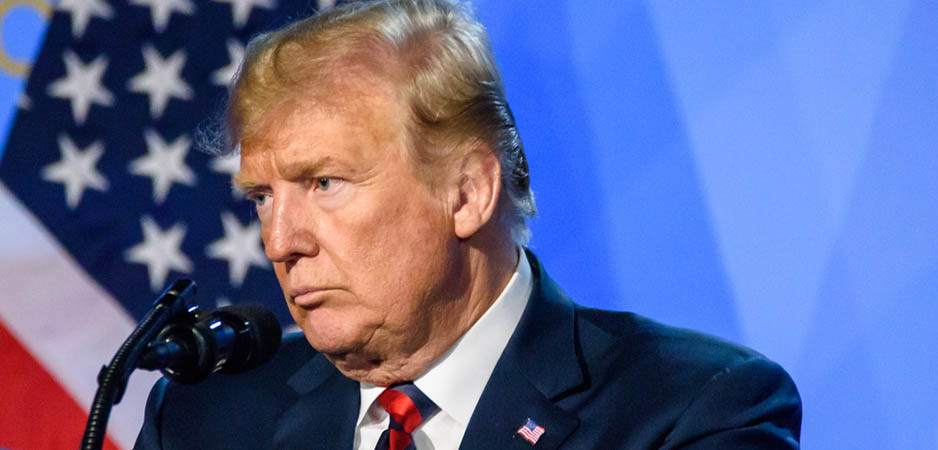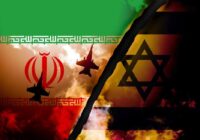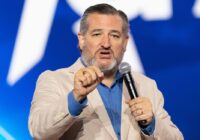Trump thinks the war in Yemen is just another extension of America First, which also seems to mean the “president first.”
President Donald Trump offered this extraordinarily reasoned justification for vetoing a Congress resolution to end the US military engagement in Saudi Arabia’s war in Yemen: “This resolution is an unnecessary, dangerous attempt to weaken my constitutional authorities, endangering the lives of American citizens and brave service members, both today and in the future.”
Here is today’s 3D definition:
Unnecessary:
Not required, from the perspective of a person who has everything (possessions or power) and therefore needs nothing, and who believes he or she has the right to everything
Contextual note
Saudi Arabia’s role in turning a civil conflict into an aggressive war five years ago became a major issue in the US only after the more sensational headline-grabbing scandal emerged of journalist Jamal Khashoggi’s murder at the Saudi Consulate in Istanbul. According to the CIA and other observers, Crown Prince Mohammed bin Salman (MBS) ordered that assassination, though he continues to deny it. In 2014, as defense minister, it was MBS who promoted the Saudi military campaign in Yemen that has resulted in the world’s worst ongoing humanitarian disaster. The media have come to know MBS as Jared Kushner’s “best friend” and Donald Trump’s favorite dictator, although some establishment Democrats and MSNBC continue to prefer believing that it’s Vladimir Putin.
Trump’s language in this brief statement merits some close reading. He calls an act of the legislative body exercising its constitutionally mandated right to declare (or not declare) war “an unnecessary, dangerous attempt.” It raises the question of what would constitute a “necessary attempt.” What Trump means is that he is the sole judge of necessity. This becomes clearer when he calls the resolution an “attempt to weaken my constitutional authorities.” As the Cornell Law School points out on the issue of war powers: “In general, scholars express various views on the amount of power that the President actually has and the amount of power that the Constitution promises to the holder of that position.”
Not content with a single attribution of “authority,” Trump invokes the curiously plural noun, “authorities.” Does he imagine that authority is a kind of string that someone in power pulls, and the more strings they have to pull, the more powerful they become?
He then invokes danger to “the lives of American citizens and brave service members,” which may reveal what the government otherwise denies: that American personnel are actively participating in the Saudi war on Yemen. Or it may simply be an appeal to the reflex of “worshipping the troops” that has become a feature of US culture in recent decades, presented in many contexts (including professional sports) as a basic civic obligation.
The final thought in the statement concerns time: “both today and in the future.” This appears to be what we might call an unnecessary and dangerous attempt to assign the authority to declare war and manage military aggression to the executive instead of Congress, deciding once and for all on the amount of power the president has.
Historical note
The United States owes its existence to the refusal of the British colonists to be subjected to the will of what they saw as a capricious king in a faraway land. Once independence was achieved, they set down to draft a constitution that reflected their concern with the kind of abuse of authority they associated with the king of England. The famous and still revered Constitution clearly authorizes Congress alone — which represents the people — and not the chief executive, elected by an electoral college, to authorize war. But recent trends in history have progressively transferred war powers to presidents, without amending the constitution.
This trend has contributed to a cultural split in the population and a gradual weakening of the authority of government itself. This first became apparent during the undeclared war in Vietnam that traumatized the nation, creating a permanent undertow of revolt within the US against an increasingly militarized federal government.
Although kept in check by a new wave of pseudo-moral patriotism during the Ronald Reagan years as the Cold War was drawing to a close, the Vietnam War had the long-term effect of dividing the population into those who endorse and embrace an aggressively militaristic stance (the majority) and those who see it as the sign of an increasingly insecure empire — an intellectual minority who nevertheless, by failing to adhere to the dominant ideology, have effectively undermined the force of its rhetoric, both at home and abroad. The United States has appeared consistently less united.
The obsession with executive privilege in the conduct of foreign policy that now stands on two pillars — war and sanctions, violence and threats — has established the US as a blind and deaf, but powerful bully, an empire with no purpose other than to fulfill the desires of whoever happens to be in charge. This became clear when George W. Bush ran the country and launched its wars to fulfill the desires of the clan of neocons, who considered themselves the apostles of American capitalism in its mission to realize the cultural takeover of a world without communism.
It continued with Barack Obama in the name of the slightly more enlightened oligarchy that bankrolled the Democratic Party. It nevertheless adhered to the notion that it was all about making the world safe for global business. And it continues again, but on a different register, with Trump’s America First ethos, which means that instead of being the enforcer of world order (Bush) or policeman of the global economy (Obama), the US is now the CEO whose job is get everyone on board to make the profits its shareholders are expecting.
Everything else — like international cooperation, understanding and morality — has become unnecessary.
*[In the age of Oscar Wilde and Mark Twain, another American wit, the journalist Ambrose Bierce, produced a series of satirical definitions of commonly used terms, throwing light on their hidden meanings in real discourse. Bierce eventually collected and published them as a book, The Devil’s Dictionary, in 1911. We have shamelessly appropriated his title in the interest of continuing his wholesome pedagogical effort to enlighten generations of readers of the news.]
The views expressed in this article are the author’s own and do not necessarily reflect Fair Observer’s editorial policy.
Support Fair Observer
We rely on your support for our independence, diversity and quality.
For more than 10 years, Fair Observer has been free, fair and independent. No billionaire owns us, no advertisers control us. We are a reader-supported nonprofit. Unlike many other publications, we keep our content free for readers regardless of where they live or whether they can afford to pay. We have no paywalls and no ads.
In the post-truth era of fake news, echo chambers and filter bubbles, we publish a plurality of perspectives from around the world. Anyone can publish with us, but everyone goes through a rigorous editorial process. So, you get fact-checked, well-reasoned content instead of noise.
We publish 2,500+ voices from 90+ countries. We also conduct education and training programs
on subjects ranging from digital media and journalism to writing and critical thinking. This
doesn’t come cheap. Servers, editors, trainers and web developers cost
money.
Please consider supporting us on a regular basis as a recurring donor or a
sustaining member.
Will you support FO’s journalism?
We rely on your support for our independence, diversity and quality.






